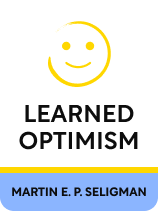

This article is an excerpt from the Shortform book guide to "Learned Optimism" by Martin E. P. Seligman. Shortform has the world's best summaries and analyses of books you should be reading.
Like this article? Sign up for a free trial here.
How does a person create a false sense of entitlement? Why is it harmful to themselves and others?
According to psychologist Martin Seligman, unearned self-esteem leads to a false sense of entitlement by making people believe it’s not necessary to work hard for success. Seligman says this is in part due to societal pressure to always maintain high self-esteem.
Read on to learn the causes and dangers of a false sense of entitlement, according to Seligman.
Forming a False Sense of Entitlement
Martin Seligman says that the modern epidemic of depression and pessimism is the result of the modern focus on the self. A false sense of entitlement comes from today’s society being all about the individual, with emphasis on personal experiences and personal achievements. (Seligman calls this phenomenon the maximal self.)
Going hand in hand with this focus on the self is pressure from society to have high self-esteem—to feel good about yourself. Any number of self-help gurus will tell you that confidence and self-esteem are the keys to success in life.
However, Seligman says that self-esteem is the result of success, not the cause of it. In fact, unearned self-esteem (in other words, narcissism) not only leads to a false sense of entitlement, but can also lead to criminal behavior and violence—attempts to force the world to give you what you think you deserve. Furthermore, because of the modern emphasis on self-esteem, people who don’t have high self-esteem feel as though they’re somehow failing. Naturally, that feeling drives their self-esteem even lower.
Unearned Self-Esteem
In The Subtle Art of Not Giving a F*ck, Mark Manson says that a great deal of personal and societal problems come from people focusing too much on themselves. Manson calls it a false sense of entitlement: the belief that they deserve to feel happy, fulfilled, and successful without having to work for it.
Much like Seligman, Manson says that entitlement goes hand-in-hand with unearned self-esteem. Manson also offers a quick guide on how to recognize genuine self-esteem versus a harmful false sense of entitlement (unearned self-esteem):
- If you have genuine self-esteem, you’ll have the confidence to recognize your flaws and mistakes and work to improve on them. That’s because genuine self-esteem is rooted in an honest evaluation of your character; you know your own worth, so your self-image isn’t harmed when you make a mistake or fall short of a goal.
- If your self-esteem isn’t based on honest self-examination, you’ll feel extremely insecure. Your self-esteem isn’t rooted in anything—it’s just a desire to feel good and project confidence—so it’s weak and easily destroyed. As a result, you do everything possible to hide your weaknesses and avoid challenges, because struggle and failure could shatter your self-esteem.
Manson also discusses the vicious circle of people with low self-esteem thinking that there’s something wrong with them, and therefore feeling even worse about themselves. He adds that social media makes this cycle much worse—it constantly bombards us with posts about happy people living amazing lives. So, to someone who’s already feeling down, social media is an endless avalanche of evidence that other people are doing better than them.

———End of Preview———
Like what you just read? Read the rest of the world's best book summary and analysis of Martin E. P. Seligman's "Learned Optimism" at Shortform.
Here's what you'll find in our full Learned Optimism summary:
- How to break out of a pessimistic, powerless mindset
- How to develop a mindset of empowerment, optimism, and confidence
- How to balance your optimism with realism






